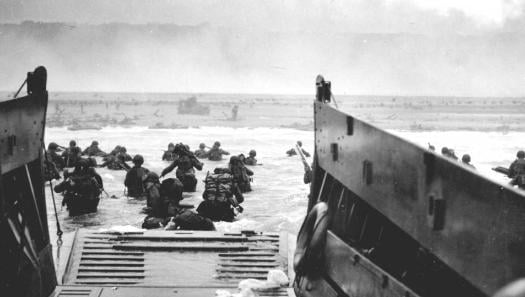Military & Veterans News
Vet News: Little Progress Seen on Processing Time of Veterans' Disability Claims
Chris Adams

WASHINGTON - Months after the Department of Veterans Affairs told Congress it expected its processing time for Veterans’ disability claims to drop, agency internal reports show little or no progress.
Records obtained by Knight Ridder show that the department is struggling in its attempt to reduce Veterans’ waiting time, in part because VA employee productivity nationwide is only three-quarters of what’s expected. In some regional offices, it’s far lower.
The delays mean that tens of thousands of Veterans who were injured serving the country are waiting far longer to have their cases decided than lawmakers - or even the VA - would like. The waiting-time measure is one of the agency’s key goals to show how well it’s serving Veterans.
Last March, the department was under fire from lawmakers for poor service. VA Secretary James Nicholson told Congress he expected processing times to drop to 145 days for the fiscal year, a target that itself had been changed from prior goals that aimed to bring the average to 100 or fewer days.
For the first 11 months of the 2005 fiscal year, which ended Sept. 30, the department’s average time to process disability claims was 167 days, one day slower than last year, according to a Sept. 22 VA report. The average for August claims was 169 days.
Michael Walcoff, a top official in the VA’s benefits division, said Nicholson fully expected the department to meet its goals but that staff productivity had suffered throughout the year.
"The secretary had very high expectations for us," Walcoff said. "I am concerned about productivity. I believe we have the capacity to be more productive than we have been this year."
Many claims for disability compensation, which pays Veterans for injuries sustained while serving in the military, take far longer than the average. The Sept. 22 report said 4,300 cases from August had taken longer than a year to decide. And while some categories of claims have shown improvement in the past two years, others showed a "marked deterioration in performance" and on balance things haven’t improved at all, the report said.
As a result, the backlog of pending claims is on the rise, just the opposite of what the department had anticipated. Only last year, VA officials said the backlog should drop to 250,000 claims nationwide. Instead, it’s now above 350,000.
"We see a deterioration of service," said Randy Reese, the national service director for Disabled American Veterans, an advocacy group. "They are starting to go into a downward spiral."
It’s frustrating to Veterans such as Joseph P. O’Marrah of New Lenox, Ill., who first asked for an increase in his disability check in April because his back, shoulder and other injuries keep getting worse, he said. By August, after exchanging letters with the VA, he called the Chicago regional office and was told that cases were taking "32 to 48 weeks, maybe longer."
"I don’t understand why it takes them so long," said O’Marrah, who is 62 years old and served in the Vietnam War. "I don’t really think they are looking at my records because they are asking me for things that are already in there."
Part of the problem is that the department is processing only 77 percent of the claims it could, according to a separate internal report that estimates production capacity based on staffing and overtime levels. For the month of August, the report projected that the department could complete 78,000 claims; instead it completed 60,000.
Some of the department’s 57 regional offices are far less productive than that: In Chicago, reviewers completed just 40 percent of expected production; in Newark, N.J., it was 28 percent; and in Baltimore, 38 percent.
Walcoff said that while "obviously we have some stations that aren’t as productive as we hoped," the extremely low numbers in certain regional offices could be due to a strategy to boost nationwide performance by having some offices focus occasionally on building evidence in cases while farming out the decision-making to other offices.
As for the nationwide numbers, Walcoff said they needed to improve and that the department was considering options to boost productivity.
For Sen. Barack Obama, D-Ill., who’s sharply criticized the department because of the comparatively low benefits that Veterans in his state receive, the numbers show that the VA is distracted by an ongoing review of 72,000 Veterans who already are receiving payments for post-traumatic stress disorder. That veterans review could result in Veterans having benefits scaled back.
"The notion that they would allocate additional manpower to see if they can take away disability awards just doesn’t make sense," Obama said. "Not only is the VA not doing enough, I’m concerned they are compounding the problem."
SOURCE: Knight Ridder Newspapers


